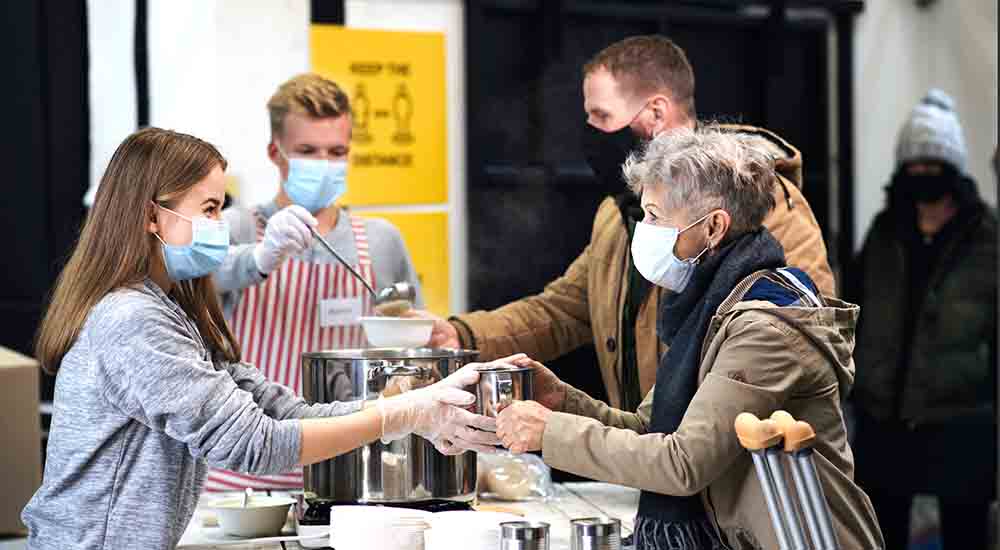On Jan. 5, 2021, the Johnny Isakson and David P. Roe Veterans Health Care and Benefits Improvement Act of 2020 (Isakson-Roe Act) was signed into law. The act set out to improve the benefits and quality of care Veterans receive from VA in various ways.
For Veterans seeking care, the Isakson-Roe Act addresses the mixed needs of some Veterans who face challenges when accessing and receiving the right kind of care. For example, Veterans who face challenges when accessing and receiving the right kind of care. Women Veterans, Veterans who have experienced intimate partner violence, and Veterans experiencing homelessness have unique health care needs. Sometimes, they require specialists with tools and resources that may not be widely available.
“I cannot thank our Veterans enough for their patience as we work to implement this monumental piece of legislation. VA is always looking for ways to improve care for Veterans, and the Isakson-Roe Act has really allowed us to focus our efforts on several of our vulnerable populations.”
Lisa Pape, Senior Advisor, Office of the Deputy Under Secretary for Health and VHA Executive Sponsor for Implementation of the Isakson-Roe Act
To help address these challenges, the Isakson-Roe Act has improved both the accessibility of health care and the quality of support Veterans receive for their physical and mental health needs.
Expands its efforts to reduce homelessness and improve Women’s health
The act aims to prevent Veterans from experiencing a loss of housing, ongoing homelessness, hunger, hypothermia, poor hygiene, unemployment, contracting or spreading COVID-19, and more. In 2021, the law authorized local VA medical centers (VAMCs) to provide over $780,000 in essential food, shelter, goods and services to more than 13,000 Veterans.
The act has also encouraged community organizations to apply for funding during a public health emergency. They do this by updating the VA Homeless Providers Grant Per Diem (GPD) Program. In addition, the law authorized the distribution of $64 million to minimize Veteran homelessness and improve living conditions for homeless Veterans.
It will do this by re-developing approximately 1,400 transitional housing beds, creating individual bedrooms with private baths and reducing shared living space.
A part of the Isakson-Roe Act – known as the Deborah Sampson Act, in honor of the Revolutionary War heroine – addresses the needs of women Veterans. Since women Veterans require a variety of specialized care, VA has created a training module, “Caring for Women Veterans.”
The module trains community care providers who treat women Veterans in gender-specific care. These efforts help ensure that each woman Veteran gets the unique care that they deserve.
Focus on intimate partner violence and sexual assault
In October 2021, VA’s Intimate Partner Violence Assistance Program launched an effort to better understand the complexities of serving Veterans who experience intimate partner violence (IPV) or sexual assault.
“Every VA patient, their families and caregivers, as well as sexual assault survivors, staff, visitors, and advocates should feel safe in all VA facilities.”
Denis McDonough, VA Secretary
The program will provide a valuable opportunity for VA to evaluate and expand existing programs, services and policies in support of Veterans who have experienced or are experiencing IPV and/or sexual assault.
Each VA facility now has a designated point of contact to receive reports of harassment from anyone on site. This service is provided in addition to the support provided by VA law enforcement and allows for anonymous reporting. The harassment points of contact undergo specialized training that includes familiarity of updated laws and bystander intervention methods.
Veteran feedback about the services and benefits they receive from VA is essential. One way VA collects this feedback is through a survey called VSignals, sent after a Veteran visits a VA facility. To encourage Veterans’ safety during visits, a question was added to the survey about sexual assault.
This addition will help identify potential issues before they start. It also will allow VA to act when instances of sexual assault arise. Additionally, VA’s annual sexual assault and harassment policy was updated and distributed to Veterans through Vet Resources, U.S. mail and email.
This is just part of the story. Read more about the first year of the Isakson-Roe Act in another blog next week.
Topics in this story
More Stories
Veteran Byron Potier weighed almost 300 pounds and was tired and lethargic. He was the perfect candidate for gastric sleeve surgery.
How much do you know about VA care, benefits and services? Don’t miss out on what you've earned—check out the "2025 VA Federal Benefits Guide for Veterans, Dependents, Survivors, and Caregivers" handbook to learn more.
Feeling stressed? Your breath can help you relax and focus. Take 3 minutes to reset and prioritize your well being for this week's #LiveWholeHealth practice.






